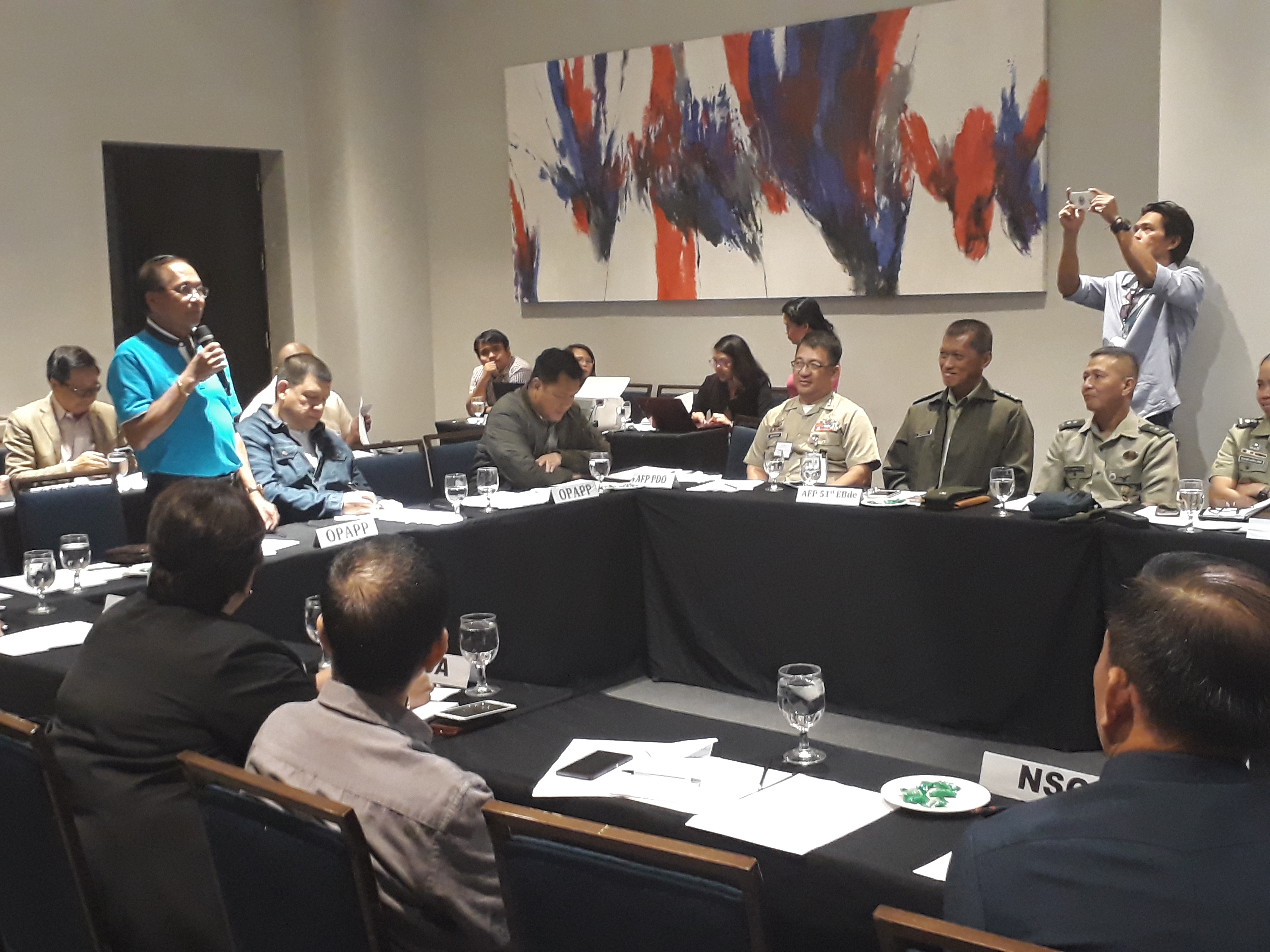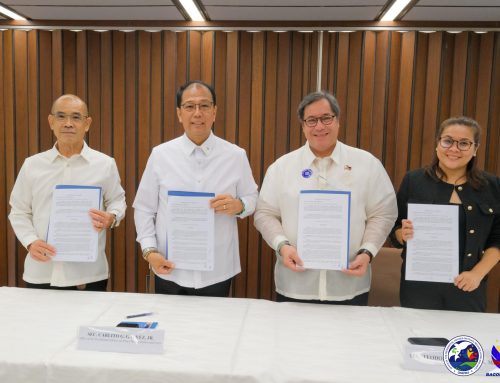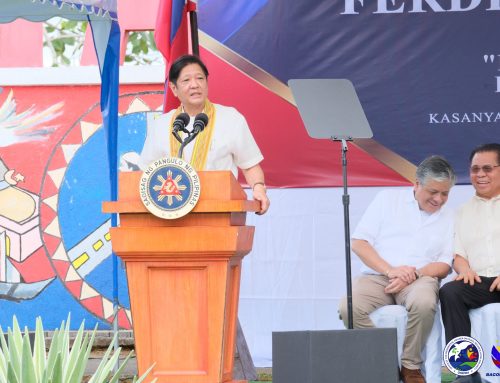SEDA HOTEL, QUEZON CITY – There is a need to create a stronger sense of ownership among beneficiaries for peace and development projects to make an impact and firmly take root in communities.
This was emphasized by Presidential Peace Adviser Jesus G. Dureza during a meeting with members of the security sector to discuss the status of Payapa at Masaganang Pamayanan (PAMANA) projects being implemented across the country.
“We need to be sensitive on how we implement our projects. [There] are fragile communities that we also need to include in our work,” Sec. Dureza said, as he addressed top military and police officials attending the meeting organized by the Office of the Presidential Adviser on the Peace Process (OPAPP).
Specifically, the peace adviser was referring to non-conflict affected areas across the country that are now being used by rebel groups as breeding grounds for new recruits.
The PAMANA national cluster meeting comes in the heels of President Duterte’s recent declaration tagging the Communist Party of the Philippines-New People’s Army (CPP-NPA) as a terrorist organization.
“There is a need for us to look at the implementation [of these projects] with a peace lens…so as not to trigger ‘unpeace situations’,” Sec. Dureza said.
He explained, this is why the “mentoring” of these communities is crucial, as this approach will enable project implementers to touch base with village folk and understand the “real situation on the ground.”
“We will get better results if the locals are involved,” the peace adviser explained, as he noted the higher success rate of development programs and projects that are done in partnership with local residents as compared to those which were done solely by private contractors.
Sec. Dureza recalled a project he oversaw years ago in Mindanao wherein the community took good care of primarily because it was built by the locals themselves.
“Those with the participation of the community are more durable,” he said, pointing out that these community-driven projects could also become a “training ground” for residents to learn new skills that they can use to earn a living.
“Development must come in tandem with peace,” Sec. Dureza said, adding, “The bottom line is, they (people) want to live a better life.”
He stressed that stakeholders should be more proactive and not wait for the signing of peace agreements before development programs are implemented.
Sec. Dureza said that with this mindset, a more conducive environment for long-lasting peace and genuine development will be established, particularly in conflict-prone areas throughout the country.
In the meantime, OPAPP Assistant Secretary Yesther Baccay said that PAMANA projects “need to be attuned to the situation on the ground.”
“The [peace and security] situation on the ground is very dynamic. There is a need for us to react accordingly,” Asec. Baccay said.
“Let us not wait for things to happen. Before they happen, there should already be interventions on the ground,” he added, as he called on members of the security sector to throw their full support behind the PAMANA program.
The PAMANA is the national government’s convergence program that carries out various development initiatives in remote, conflict-affected communities across the country, ensuring that the needs of the marginalized and underserved sectors are addressed.
Since its implementation in 2011, the program has undertaken about P50 billion worth of development projects across the nation’s conflict-prone areas. ###











